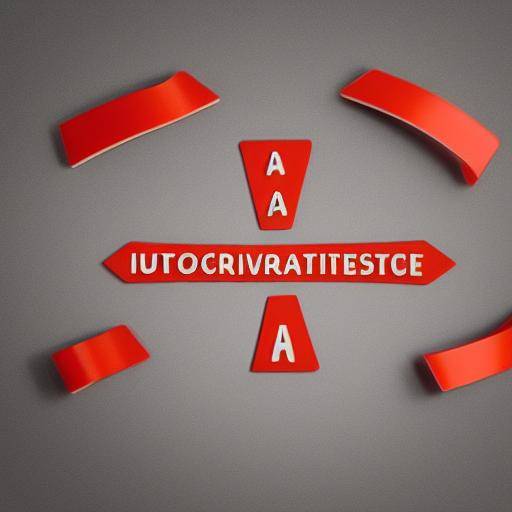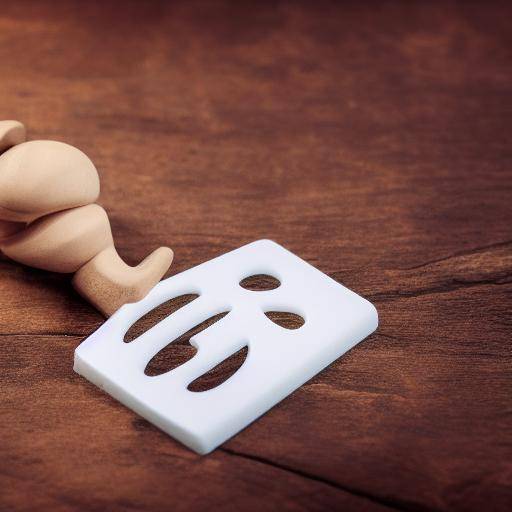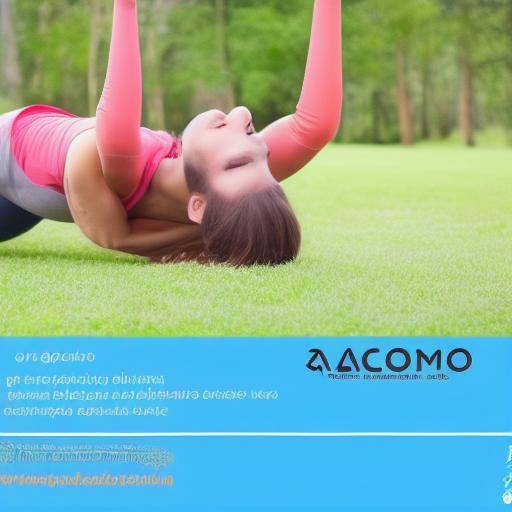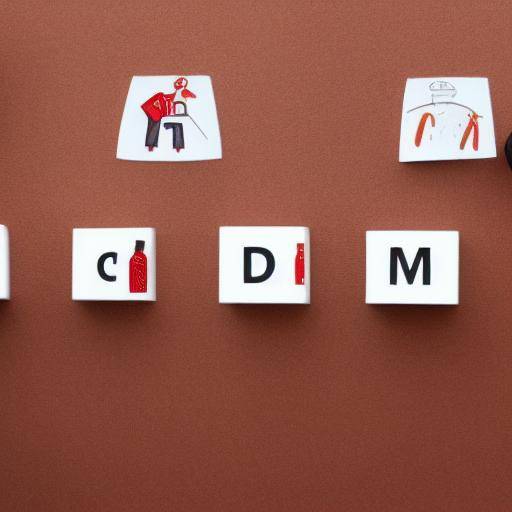
Self-discipline plays a crucial role in our ability to avoid exhaustion and maintain a state of personal well-being. In a world driven by constant pressure and demands, developing self-discipline is essential to protecting our emotional and physical health. In this article, we will explore in detail how self-discipline can be a fundamental ally in the fight against exhaustion, offering practical advice, deep analysis and pearls of expert wisdom. Join us on this path to balance and serenity!
Introduction
In today's society, self-discipline has become an indispensable resource to counter the pressures of exhaustion. This article seeks to provide a complete guide on how to develop self-discipline, face exhaustion and cultivate personal well-being. Throughout the text, we will explore the history and background of self-discipline, analyze its practical application and current trends, and present the expert vision of its future. In addition, we will provide detailed practical advice and analysis on how self-discipline can be an invaluable tool in preventing exhaustion and promoting personal well-being.
History and Background
Self-discipline has been a fundamental concept throughout the history of humanity. From ancient philosophies to modern theories of psychology, self-discipline has been explored, studied and valued as a pillar for personal development and success. In ancient times, philosophers like Aristotle and Seneca addressed the importance of self-discipline in the search for virtue and happiness. Over time, this notion has evolved, influencing disciplines such as psychology, management and education, among others.
In the modern sphere, self-discipline has become a central theme in promoting personal well-being and preventing exhaustion. Its importance has been highlighted in areas such as time management, the acquisition of healthy habits and the management of stress. Recent research in psychology has demonstrated its relevance in the development of emotional resilience, perseverance and the achievement of long-term goals.
Deep analysis
We understand that the development of self-discipline can present significant challenges, especially in an environment marked by constant pressure and omnipresent distractions. However, their benefits are equally significant. Self-discipline allows us to keep the focus on our goals, confront adversity with determination and resist the temptation to yield to momentary impulses that can undermine our well-being. Recent research has linked self-discipline with increased labor satisfaction, increased productivity and a lower incidence of exhaustion and stress.
Despite the benefits, self-discipline faces challenges in modern society. Constant temptations, pressure of performance and immediatist culture represent significant obstacles to their development. However, effective strategies such as time management, emotional self-regulation and proactive planning can strengthen self-discipline and mitigate the effects of exhaustion.
Comprehensive review
The development of self-discipline not only has personal implications, but also in the workplace. Organizations that foster self-discipline among their employees tend to experience lower levels of rotation, greater commitment and a healthier working culture. On the other hand, the lack of self-discipline in the working environment can lead to high levels of exhaustion, decrease in performance and deterioration of general well-being.
Self-discipline also plays a crucial role in promoting personal well-being at the individual level. The establishment of healthy limits, the practice of self-care and the achievement of personal goals are areas in which self-discipline can flourish, providing emotional satisfaction and a greater balance in everyday life.
Comparative analysis
Comparatively, self-discipline and exhaustion represent two opposite ends in human experience. While self-discipline involves an active commitment to personal goals and values, exhaustion arises as a result of chronic stress, lack of balance and decreased mental resilience. Personal well-being, on the other hand, is influenced both by self-discipline and by the ability to manage and prevent exhaustion. It is essential to understand how these three elements interact with each other, and how we can foster self-discipline to promote greater personal well-being and prevent exhaustion.
Practical Tips and Accessible Tips
Developing self-discipline requires a conscious and systematic approach. Here are some practical tips that can help you strengthen your self-discipline, prevent exhaustion and promote your personal well-being:
- Sets clear targets: Defining specific and achievable goals gives you a framework to exercise your self-discipline and keep the focus on what is important.
- Practice emotional self-management: Identify and manage your emotions effectively to prevent your judgment from clouding and to undermine your self-discipline.
- Create healthy habits: Establishing healthy routines and practices strengthens your self-discipline and promotes personal well-being, thereby reducing the risk of exhaustion.
- Prioritizes rest time: The right rest is crucial to maintain your self-discipline and prevent exhaustion. Incorporate regular breaks in your day to recharge energies.
Perception of Industry and Expert Reviews
Experts on personal development and well-being often highlight the fundamental importance of self-discipline in the prevention of exhaustion. According to Dr. Ana Rojas, a clinical psychologist specializing in the management of labor stress, "Self-discipline is like a muscle that we must strengthen. The more we exercise it, the more resistant we turn to external pressures, which inevitably leads to a state of greater well-being."
In addition, renowned business leaders have emphasized the positive influence of self-discipline in the working environment. Bill Gates, founder of Microsoft, recognizes self-discipline as a key aspect of his personal and professional success, highlighting his ability to maintain a long-term approach and resist unnecessary distractions.
Case Studies and Real Life Applications
To better understand how self-discipline can counter exhaustion and promote well-being, consider the following:
Case 1: Successful Entrepreneur
Juan, a dedicated entrepreneur, faced great challenges when he started his company. However, his self-discipline and relentless approach allowed him to overcome obstacles, avoid exhaustion and achieve success.
Case 2: Professional in the Health Area
Maria, a health professional, found her work extremely stressful. However, by developing self-discipline in managing your time and your emotional well-being, you managed to prevent exhaustion and find a healthier balance in your work and personal life.
Future Trends and Predictions
As we move towards the future, self-discipline will be increasingly valued in society. With the growing awareness of the exhaustion and importance of personal well-being, self-discipline is expected to become an indispensable skill to confront modern challenges, both individually and organizationally. Incorporating self-discipline into education, entrepreneurship and stress management will be a key trend in seeking greater balance and well-being in an increasingly demanding and competitive world.
Conclusions
In short, the development of self-discipline is crucial to counteracting exhaustion and fostering personal well-being. By strengthening our ability to maintain the approach, resist temptations and pursue significant goals, we can cultivate greater emotional resilience, prevent exhaustion and promote a lasting state of well-being. Through practical strategies, expert perceptions and examples of real life, this article has provided an enriching view on the interaction between self-discipline, exhaustion and personal well-being, inviting us to reflect and act towards our integral well-being.
Frequently asked questions
1. Why is it important to develop self-discipline to prevent exhaustion?
Self-discipline is crucial to prevent exhaustion as it allows us to keep the focus on significant goals, resist the temptation to yield to harmful impulses and effectively manage stress and labor pressure.
2. How can I strengthen my self-discipline in stressful situations?
Practice emotional management, setting clear goals and adopting healthy habits are effective strategies to strengthen self-discipline in stressful situations.
3. How does self-discipline influence personal well-being?
Self-discipline promotes personal well-being by allowing us to balance our goals and self-care, thus avoiding exhaustion and fostering greater satisfaction in everyday life.
4. What is the role of self-discipline in the working environment?
In the working environment, self-discipline facilitates productivity, promotes a healthier working environment and contributes to the prevention of exhaustion, as well as to the effective management of stress.
5. What strategies can I implement to develop my self-discipline in everyday life?
Prioritizing rest, setting healthy boundaries and practising proactive planning are effective strategies to develop self-discipline on a day-to-day basis, thus fostering greater well-being and resilience.
6. How can self-discipline contribute to a more balanced and sustainable future?
Self-discipline can contribute to a more balanced and sustainable future by fostering personal and collective resilience, thus enabling more effective and sustainable well-being to be addressed.
In conclusion, the development of self-discipline is a determining factor in the prevention of exhaustion and the promotion of personal well-being. By understanding its importance, applying practical advice and adopting effective strategies, we can cultivate greater emotional resilience, prevent exhaustion and promote a lasting state of well-being in our lives.
The road to self-discipline is a personal path that requires effort, perseverance and commitment, but the benefits it provides in terms of emotional balance, physical well-being and mental resilience are invaluable. By developing self-discipline, we open a portal to a more full, conscious and fulfilling life.
Let self-discipline be your ally in the constant pursuit of harmonious balance and full life!
Remember, self-discipline is the beacon that guides the boat into calm waters in the midst of the storm.






















































